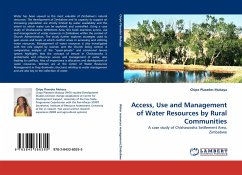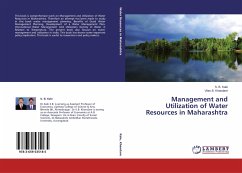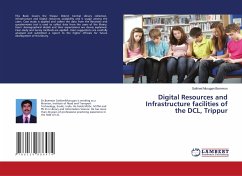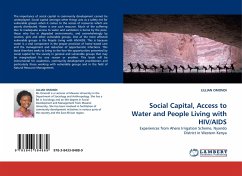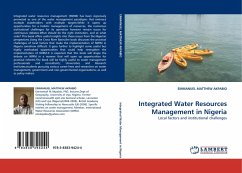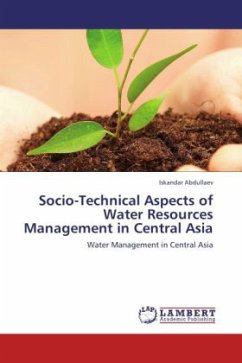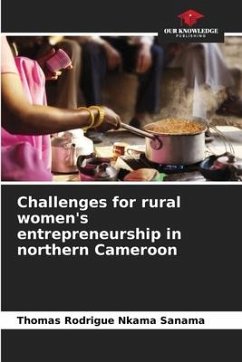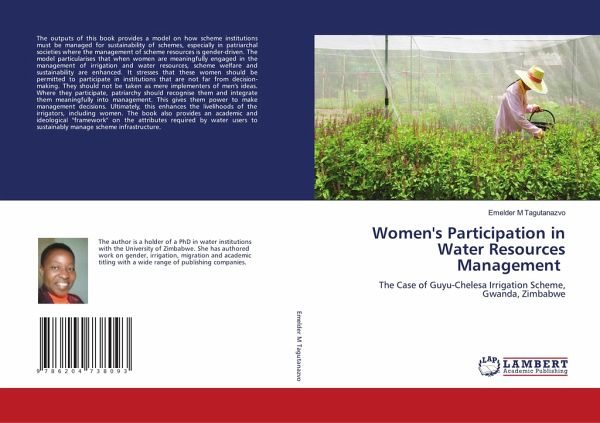
Women's Participation in Water Resources Management
The Case of Guyu-Chelesa Irrigation Scheme, Gwanda, Zimbabwe
Versandkostenfrei!
Versandfertig in 6-10 Tagen
60,99 €
inkl. MwSt.

PAYBACK Punkte
30 °P sammeln!
The outputs of this book provides a model on how scheme institutions must be managed for sustainability of schemes, especially in patriarchal societies where the management of scheme resources is gender-driven. The model particularises that when women are meaningfully engaged in the management of irrigation and water resources, scheme welfare and sustainability are enhanced. It stresses that these women should be permitted to participate in institutions that are not far from decision-making. They should not be taken as mere implementers of men's ideas. Where they participate, patriarchy should...
The outputs of this book provides a model on how scheme institutions must be managed for sustainability of schemes, especially in patriarchal societies where the management of scheme resources is gender-driven. The model particularises that when women are meaningfully engaged in the management of irrigation and water resources, scheme welfare and sustainability are enhanced. It stresses that these women should be permitted to participate in institutions that are not far from decision-making. They should not be taken as mere implementers of men's ideas. Where they participate, patriarchy should recognise them and integrate them meaningfully into management. This gives them power to make management decisions. Ultimately, this enhances the livelihoods of the irrigators, including women. The book also provides an academic and ideological "framework" on the attributes required by water users to sustainably manage scheme infrastructure.



